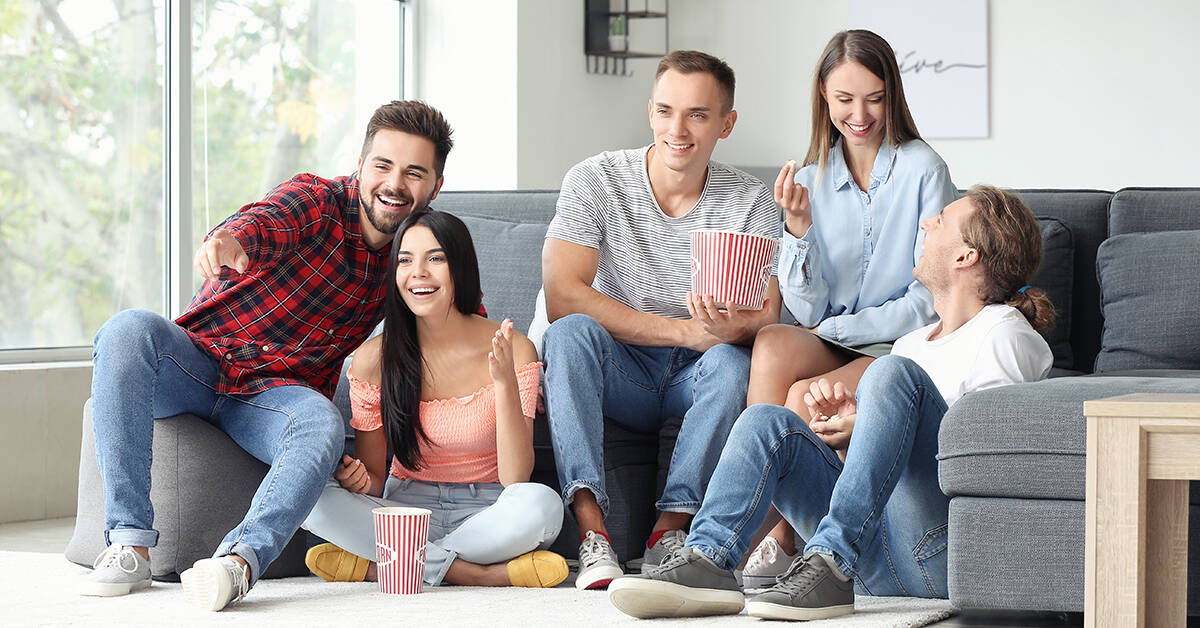Celebrating Drinking Holidays Sober: Ideas and Tips for Enjoying the Occasion

When you quit drinking, you think your life will be much easier, but sobriety also comes with many challenges. One of those is being around alcohol in social settings.
Pre-sobriety, this would sound like a good time, but now that we’re working on our recovery, it’s hard. Drinking holidays don’t make it any easier; these boozy situations can sometimes feel unavoidable. But it doesn’t have to be that way.
What is a drinking holiday?
A drinking holiday is where alcohol traditionally plays a significant role in the celebration. Many families have alcohol-related traditions or expectations of drinking when everyone gets together on holidays.
You can likely think of some holidays you used to celebrate with a drink in hand. In the past, you probably used to look forward to these days. For many, the holiday was another reason to drink.
If everyone else does it, the spotlight is off you, right?
Here’s a short list of some holidays known to be boozy:
- New Year’s Eve
- Mardi Gras
- Purim
- St. Patrick’s Day
- Cinco de Mayo
- 4th of July
- Labor Day
- Christmas
Of course, other days during the year aren’t technically holidays but are considered big drinking days, like Superbowl Sunday, the day before Thanksgiving, spring break, etc.
Although these special days have earned the title of “drinking holiday,” alcohol isn’t required to enjoy them.
People may choose to celebrate holidays without alcohol for various reasons, including personal health concerns, religious beliefs, or as part of a commitment to sobriety.
Benefits of celebrating sober
Celebrating sober on heavy drinking holidays has many benefits, most of which are also benefits of sobriety in general.
Reduce stress and anxiety
Many people drink to cope with the problems they have. Some relieve stress by drinking after a long workday or going to the bar with friends.
However, alcohol changes the neurotransmitters in our brains, so drinking it can increase your anxiety levels. Being booze-free will likely benefit your overall mental health and make dealing with stress easier.
Holidays can be stressful. Although not drinking on these days can be challenging if you’re around a lot of alcohol, abstaining will help your anxiety in the long run. You no longer have to deal with hanxiety because there is no waking up worried about what you said or did. And if you’re on medication for anxiety, alcohol won’t interfere with the effects.
Create memories that you’ll remember
Without being under the influence, you can make real memories that you’ll actually remember! Sounds fun, right?
Even if your drinking days weren’t all bad, there are probably some moments you’d prefer to forget. Without a holiday buzz, you’ll (hopefully) make better decisions and have none of those alcohol-fueled regretful moments.
Making memories with friends and family during the holidays is one of the many benefits of being sober. You may not realize it at the moment, but if you reflect on the celebration the next day or a month later, you’ll realize how much you recall from the holiday.
Promote healthy relationships
Having good conversations with your friends and acquaintances at the celebration can help you enjoy the holiday and improve your relationships with the people around you.
Since you’re not drinking, you can focus on the connections between you and the people in your life. You might even learn something new about someone you’ve known for a long time.
Improve overall mental and physical health
Not drinking can benefit your mind and body. Not only does it lower stress and anxiety levels, but it can also help balance mood and improve cognition.
No post-holiday hangover means you’ll be able to take better care of yourself instead of trying to sleep off the previous day’s festivities. By not drinking, you’ll be more motivated to make other positive changes, like eating well, exercising, and resting properly.
Ideas for Celebrating Drinking Holidays Sober
Non-alcoholic drinks
Replace traditional alcoholic drinks with non-alcoholic versions. Yes, it’s possible! Popular cocktails can be made without booze using flavored sparkling water, mocktails, or even ice cubes with a splash of fruit juice.
Many NA beverage brands have products mimicking alcoholic drinks, including numerous NA beer brands. If you’re at a bar or restaurant, you can ask the bartender to make an NA version of your favorite drink. Watch them make it, or have someone else taste it first to be safe.
Booze-free beverages aren’t for everyone. Only use NA drinks as a supplement for alcohol if you are comfortable.
Activities to replace drinking
Activities such as playing board games, watching movies, or walking with friends and family after a meal can provide an enjoyable and meaningful way to spend time together without the need for alcohol.
Consider making new holiday traditions that don’t involve drinking. Your friends and family might be surprised by what you come up with. Remember, alcohol isn’t required for fun!
Food to replace traditional drinking foods
What’s a party without food? Many holiday celebrations tie drinking to eating, and the menus often reflect this.
Ditch the fried food for something fresh and nutritious. Foods such as chips and dip, cheese platters, and different kinds of fruits can provide a tasty alternative to traditional drinking foods.
Or, eat fried and salty food if you want! Make sure you’ve got something NA to wash it down. Staying sober is the primary goal.
Tips for Celebrating Drinking Holidays Sober
A plan helps you to have the best possible outcome at holiday celebrations where alcohol is the focus.
Avoiding triggers
If you’re celebrating while sober, be aware of your environment and potential triggers that might lead to relapse. It is essential to identify these triggers in advance and plan how to cope with them should they arise.
Plan ahead
Use the who, what, when, where, and why method when preparing for a drinking holiday.
Who
Who is having the party? Who will be there? Who do you need to be prepared to talk to or avoid? Who can you count on to support you?
What
What could happen at the party? Play the tape forward and prepare for specific situations, like being asked why you’re not drinking. What will you do when you start feeling uncomfortable?
When
When is the party? Do you have to work the next day? Consider when you want to leave if it’s a late-night celebration like New Year’s Eve.
Where
Where is the celebration happening? Do you have any old memories from that location that might cause you to become upset? If it’s at a bar, do you comfortable going?
Why
What’s the reason behind the party? Will alcohol be the center of attention? You may reconsider attending if it’s a holiday celebration focused on drinking games or wine and beer tastings.
Set boundaries
Talk to your friends and family beforehand and tell them what you are comfortable with. Tell them how long you plan to stay and that you would appreciate it if they respected your wishes.
It’s easier said than done but try to avoid being around people who don’t support you or give you a hard time about not drinking. Remember, that’s a “them” thing. You don’t need to explain anything to anyone.
Be prepared to talk about not drinking
People may ask you why you’re not drinking. So it’s good to have something to say when that time comes. You don’t have to give them your entire life story, but if you’re comfortable, you can tell them why.
If you want to make it short and sweet, just tell them you’re not drinking right now or say you feel better when you don’t drink alcohol.
Make something up if you feel uncomfortable talking about your reason for not drinking. Tell them you’re on medication or that you’re doing a cleanse.
The point is to answer the question or redirect their attention. Unfortunately, people don’t always understand our reasons for not drinking, nor do they have to. All that matters is knowing what we’re doing is best for us.
Be ready for conversation
With a holiday party comes conversations, which can be uncomfortable if you’re newly sober or more introverted.
Have some go-to topics ahead of time. Think about what’s happening in the media or local news, or talk about the weather if you can’t think of anything else.
Talking to intoxicated people when you’re sober can be a challenge. Try to steer clear of deep conversations with drunk people, and don’t argue with them. You don’t want to get into a heated debate with someone under the influence while they’re not thinking straight. Remember, you’re the one with a clear mind this time!
Have fun!
Hopefully, some less intoxicated people or non-drinkers will attend your holiday celebration. Find those people and try to focus on enjoying your time. You did leave your house for this, after all.
It’s not impossible to enjoy the holidays without booze. It just takes thoughtful planning and some creative maneuvering.
Remember to be aware of potential triggers and be prepared with activities, food, and conversation starters to maximize your sober celebration. Cheers!
We take our music-focused treatment for addiction very seriously, so we are going to hold our content to the same precision standards. Recovery Unplugged’s editorial process involves our editing safeguard and our ideals. Read our Editorial Process.
